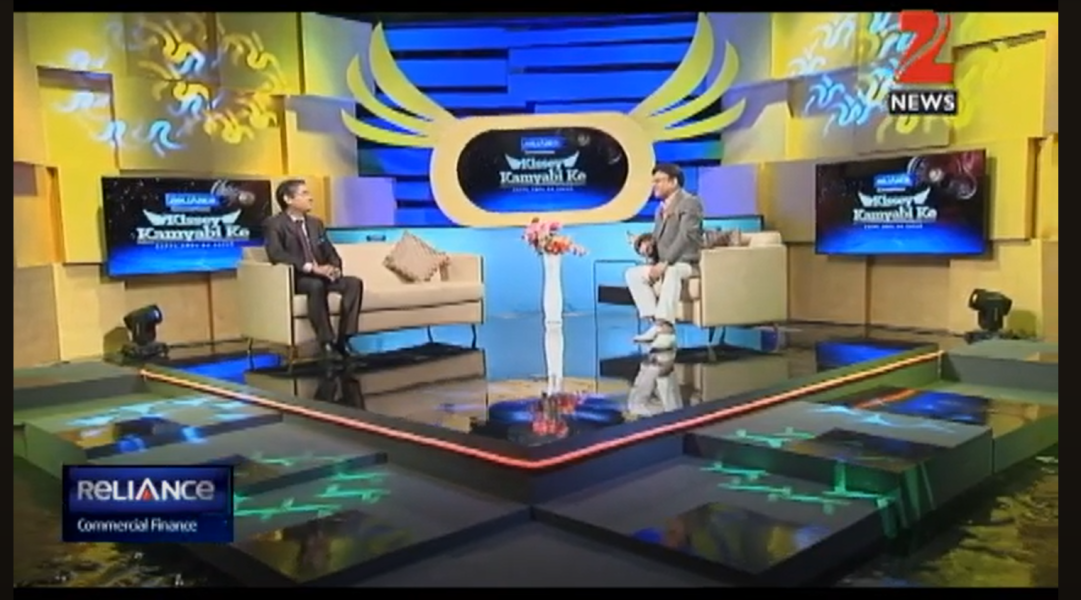From Bankruptcy to a New Beginning: The Lessons Failure Taught Me
Acceptance: The First Step Back to Life
The world crumbled beneath my feet. Su-kam, the company I had nurtured for over three decades, was gone, lost to the abyss of bankruptcy. This was more than a business failure; it was a profound personal identity crisis. For years, I wasn’t just Kunwer Sachdev—I was “the Su-kam guy.” My identity was so intertwined with the brand that without it, I felt I was nobody.
The most challenging battle wasn’t legal or financial; it was internal. It took me over a year to truly accept that I had failed. I learned that acceptance isn’t about surrender; it’s about acknowledging reality so you can finally move forward. The moment I stopped fighting the fact and accepted it, both in my mind and in front of the world, was the moment my new life began. That acceptance was the foundation upon which everything else was rebuilt.

The Humbling Journey of Relearning
The initial shock was paralyzing. The luxuries I had grown accustomed to—the chauffeur, the executive lifestyle—vanished. I learned to cook, order my own groceries, and navigate the city without a shield of status. This humbling transition, while difficult, was a necessary cleanse. It stripped away the non-essential and forced me to rediscover my own capabilities.
In the silence that followed the storm, I found a hidden gift: time to think. Without the endless meetings and phone calls, I had the space to learn and grow. I delved into the digital world, taught myself WordPress, and reacquainted myself with programming—a skill I had long forgotten while building the company. I even rediscovered a passion for cooking. This period wasn’t a detour; it was an essential education. I was not just waiting for a comeback; I was actively building a new toolkit for it.
The Spark of a Second Chance
One day, while sifting through the remnants of my old life, I stumbled upon a forgotten diary. It wasn’t just a notebook; it was a chronicle of my own potential. Page after page detailed products I had developed, complete with stage-gate processes, implementation strategies, and market analyses. I had documented the entire architecture of building something from nothing.
Holding that diary, a profound realization hit me: I had done this before. I had built not just a company, but countless products and complex structures from the ground up. The skills, the vision, and the tenacity were all mine. This tangible evidence of my past accomplishments was the antidote to my shaken confidence.
Inspired, I decided to start small. I began writing my own website in Word Press which I learnt during this period and re learnt the coding part for the hardware of Inverters which i learnt in Assembly Language and now C language and started looking at the earlier AI coming in coding etc. which was an eye opener for me. With each AI based earlier systems I realized the future of the software and hardware going to take shape in future. I wasn’t just building a site—I was rebuilding my self-belief. I remembered that the deep, hands-on knowledge I had gained at Su-kam was a lifetime’s achievement. Reconnecting with the creator and builder within me reminded me that my greatest asset wasn’t a company name, but the invaluable experience I carried in my own mind. The failure hadn’t erased that; it had just made me forget it was there.
The Courage to Ask for Help
I also learned a critical lesson in humility: no one rebuilds alone. As legal battles raged and expenses mounted, I knew I couldn’t carry the weight by myself. Swallowing my pride, I reached out to friends and family, openly sharing my struggles.
Their response was overwhelming. They offered encouragement, financial support, and invaluable advice. Some connected me with new lawyers, others with potential investors. This network became my lifeline.
I also learned to manage my perceptions. When some calls went unanswered, my fear interpreted it as rejection. But time taught me that my bias was clouding my judgment. Many of those who seemed distant later reached out, their own lives simply getting in the way. This taught me that asking for help requires not just courage, but also the grace to understand others’ responses without prejudice.
Conclusion: Failure as a Foundation
Losing Su-kam was devastating, but in its ashes, I found something more valuable: a renewed sense of self. The journey forced me to confront my limitations, rediscover my resilience, and appreciate the profound strength found in community. I emerged not just as an entrepreneur again, but as a wiser, more grounded, and more empathetic human being. The failure didn’t define me; but the way I learned from it absolutely did. I had lost a company, but I had found myself.
